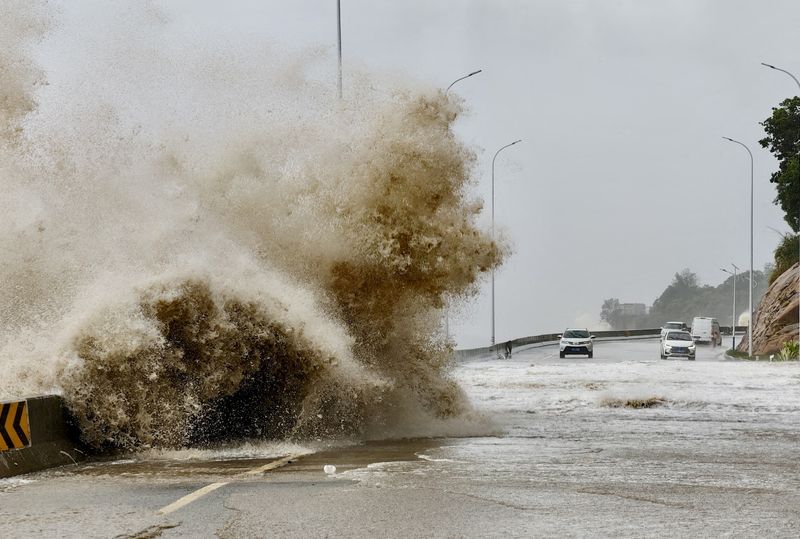SINGAPORE (Reuters) - A devastating typhoon that tore through the Philippines, Taiwan and China last month, destroying infrastructure and leaving more than 100 people dead, was made significantly worse by human-induced climate change, scientists said in a report on Thursday.
As another typhoon made landfall in Japan, climate researchers said warmer seas were providing extra "fuel" for tropical storms in Asia, making them more dangerous.
Typhoon Gaemi swept across East Asia beginning on July 22, with more than 300mm (11.81 inches) of rainfall falling on Philippine capital Manila in just one day.
Wind speeds as high as 145 mph (232 kph) drove storm waves that sank an oil tanker off the Philippine coast and a cargo ship near Taiwan. Rain from Gaemi also caused fatal mudslides in the Chinese province of Hunan.
Typhoon Gaemi's wind speeds were around 9 mph more intense and its rainfall up to 14% higher as a result of warmer sea temperatures, according to scientists in a report from World Weather Attribution, an alliance of researchers that analyse the relationship between climate change and extreme weather.
"With global temperatures rising, we are already witnessing an increase in these ocean temperatures, and as a result, more powerful fuel is being made available for these tropical cyclones, increasing their intensity," Nadia Bloemendaal, researcher at the Royal Netherlands Meteorological Institute, told a briefing on Wednesday ahead of the report's release.
At the same briefing, Clair Barnes, research associate at London's Grantham Institute, said typhoons were now 30% more likely to occur compared to the pre-industrial age, warning that they will become even more common and intense if global temperature increases reach 2 degrees Celsius (3.6 Fahrenheit).

East Asia is accustomed to extreme weather, but its flood prevention infrastructure and emergency response planning are coming under increasing pressure, said Maja Vahlberg, a climate risk consultant with the Red Cross Red Crescent Climate Centre.
"Even our best efforts are being stretched to their limits," she said.